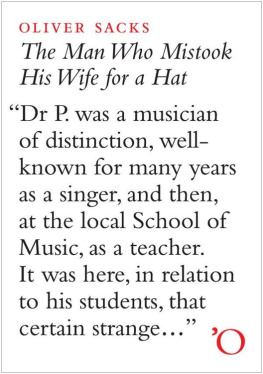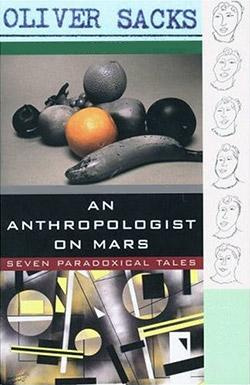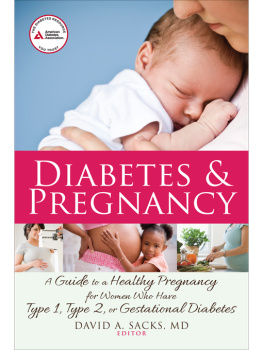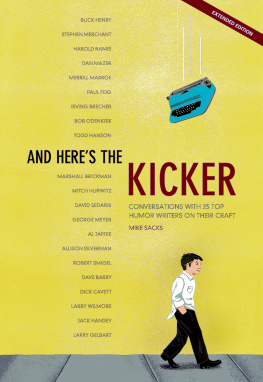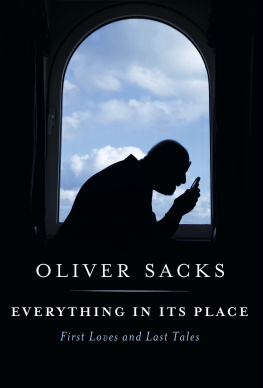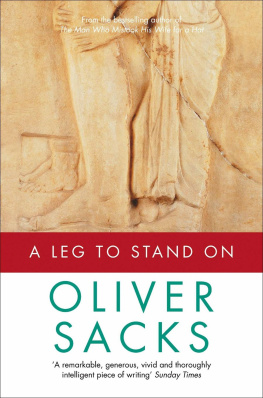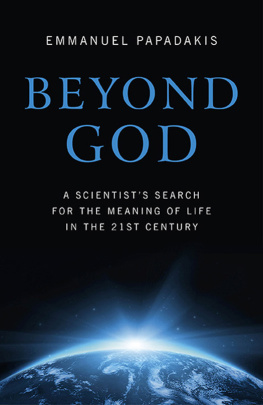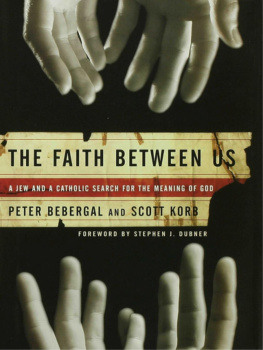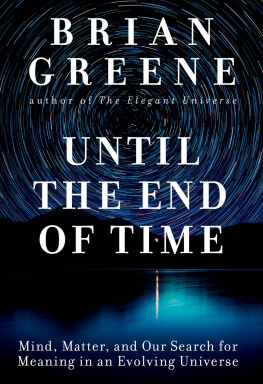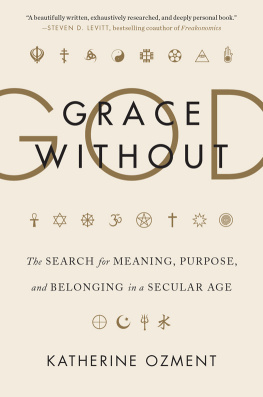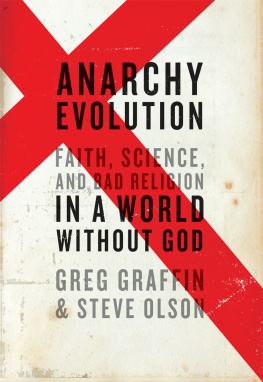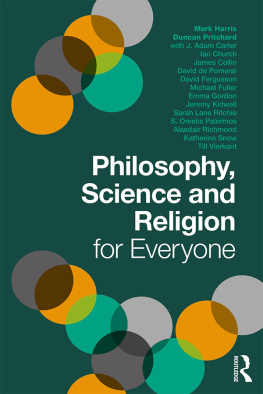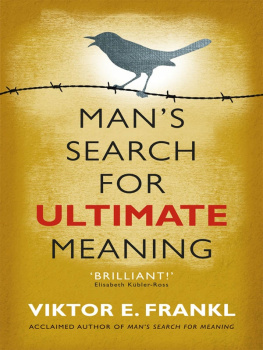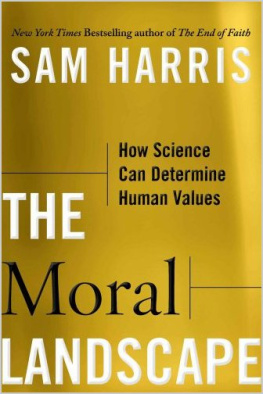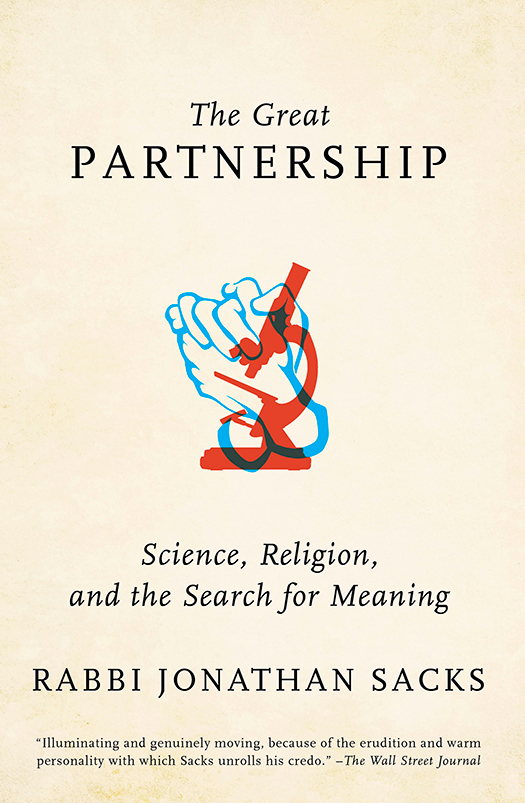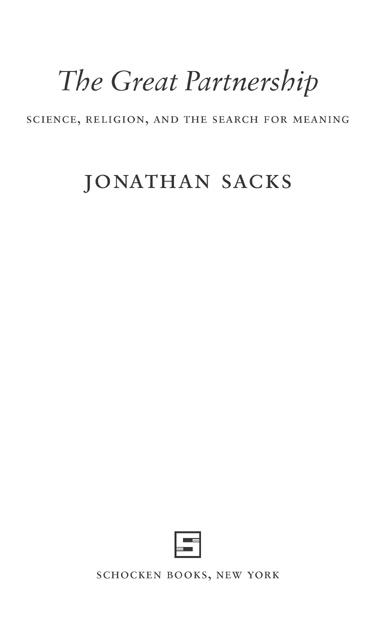Copyright 2011 by Jonathan Sacks
All rights reserved. Published in the United States by Schocken Books, a division of Random House LLC, New York, and in Canada by Random House of Canada Limited, Toronto, Penguin Random House companies. Originally published in Great Britain by Hodder & Stoughton, a Hachette UK company, London, in 2011, and subsequently in the United States by Schocken Books, a divison of Random House LLC, New York, in 2012.
Schocken Books and colophon are registered trademarks of Random House LLC.
A portion of this work originally appeared on TheDaily.com (May 27, 2012).
Library of Congress Cataloging-in-Publication Data
Sacks, Jonathan, [date]
The great partnership : Science, religion, and the search for meaning / Jonathan Sacks.
p. cm.
Includes bibliographical references.
ISBN 978-0-8052-1250-1
eBook ISBN: 978-0-8052-4302-4
1. Religion and science. I. Title.
BL240.3.s23 2012 201.65dc23 2012006601
www.schocken.com
Cover image (hands) illustrated by Steven Stines
Cover design by Brian Barth
First Paperback Edition
v3.1_r1
To my brother Brian
with love
Contents
Acknowledgements
Ive been thinking about this book for over forty years, and its impossible to thank all those who have helped me on my way. But as I make clear in the book, I owe a great debt to my philosophy teachers at Cambridge and Oxford, especially James Altham, Roger Scruton, Jonathan Glover, the late Sir Bernard Williams and Philippa Foot; to those who inspired me to become a rabbi, the late Lubavitcher Rebbe, Rabbi Menachem Mendel Schneersohn and Rabbi Joseph Dov Soloveitchik; and most of all to my teacher and mentor for twelve years, Rabbi Nachum Rabinovitch, a man to whom I owe more than I can say, not only for his insistence on fastidious scholarship, but also for his intellectual clarity and moral courage. I consider myself blessed to have been his student.
I tried out the central thesis of the book some years ago in a Credo column in The Times. The then Bishop of Durham, Tom Wright, himself a distinguished author, expressed an interest which encouraged me to stay with the idea. When, in 2009, Iain McGilchrist published his magisterial The Master and His Emissary: The Divided Brain and the Making of the Western World, I knew I was on the right lines. I benefited enormously from a conversation I had with him.
Stuart Roden persuaded me that this was a book worth writing. As always I was encouraged by the lay leaders with whom I have had the privilege to work, especially Dr Simon Hochhauser, Peter Sheldon, Professor Leslie Wagner and Sir Ian Gainsford. I could not have asked for better friends. Thanks too to my office team, especially Joanna Benarroch.
Two sad events occurred while I was writing it. My mother died, as did Marc Weinberg, son of the former director of my office, Syma Weinberg. I hope in some way what I have written is a tribute to their memory.
My thanks to my literary agent Louise Greenberg for her endless patience and tireless efforts; to my editor Altie Karper and her wonderful team at Schocken; to my publisher Ian Metcalfe and the team at Hodder, who have shown faith in their author bordering on the miraculous; and to Dayan Ivan Binstock and David Frei of the London Beth Din who read the manuscript and made many important suggestions. The errors that remain are my own: But who can discern their own errors? Acquit me of hidden faults (Psalm 19:22). Finally, as always, my greatest thanks go to my wife Elaine, whose kindness makes gentle the life of this world, and whose faith in people has been my inspiration.
Jonathan Sacks
February 2011 / Adar Rishon 5771
Introduction
If the new atheists are right, you would have to be sad, mad or bad to believe in God and practise a religious faith. We know that is not so. Religion has inspired individuals to moral greatness, consecrated their love and helped them to build communities where individuals are cherished and great works of loving kindness are performed. The Bible first taught the sanctity of life, the dignity of the individual, the imperative of peace and the moral limits of power.
To believe in God, faith and the importance of religious practice does not involve an abdication of the intellect, a silencing of critical faculties, or believing in six impossible things before breakfast. It does not involve reading Genesis 1 literally. It does not involve rejecting the findings of science. I come from a religious tradition where we make a blessing over great scientists regardless of their views on religion.
So what is going on?
Debates about religion and science have been happening periodically since the seventeenth century and they usually testify to some major crisis in society. In the seventeenth century it was the wars of religion that had devastated Europe. In the nineteenth century it was the industrial revolution, urbanisation and the impact of the new science, especially Darwin. In the 1960s, with the death of God debate, it was the delayed impact of two world wars and a move to the liberalisation of morals.
When we come to a major crossroads in history it is only natural to ask who shall guide us as to which path to choose. Science speaks with expertise about the future, religion with the authority of the past. Science invokes the power of reason, religion the higher power of revelation. The debate is usually inconclusive and both sides live to fight another day.
The current debate, though, has been waged with more than usual anger and vituperation, and the terms of the conflict have changed. In the past the danger and it was a real danger was a godless society. That led to four terrifying experiments in history, the French Revolution, Nazi Germany, the Soviet Union and Communist China. Today the danger is of a radical religiosity combined with an apocalyptic political agenda, able through terror and asymmetric warfare to destabilise whole nations and regions. I fear that as much as I fear secular totalitarianisms. All religious moderates of all faiths would agree. This is one fight believers and non-believers should be fighting together.
Instead the new atheism has launched an unusually aggressive assault on religion, which is not good for religion, for science, for intellectual integrity or for the future of the West. When a society loses its religion it tends not to last very long thereafter. It discovers that having severed the ropes that moor its morality to something transcendent, all it has left is relativism, and relativism is incapable of defending anything, including itself. When a society loses its soul, it is about to lose its future.
So let us move on.
I want, in this book, to argue that we need both religion and science; that they are compatible and more than compatible. They are the two essential perspectives that allow us to see the universe in its three-dimensional depth. The creative tension between the two is what keeps us sane, grounded in physical reality without losing our spiritual sensibility. It keeps us human and humane.
The story I am about to tell is about the human mind and its ability to do two quite different things. One is the ability to break things down into their constituent parts and see how they mesh and interact. The other is the ability to join things together so that they tell a story, and to join people together so that they form relationships. The best example of the first is science, of the second, religion.


